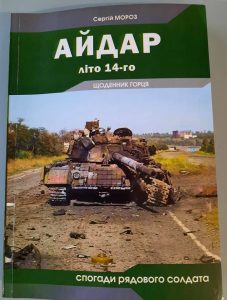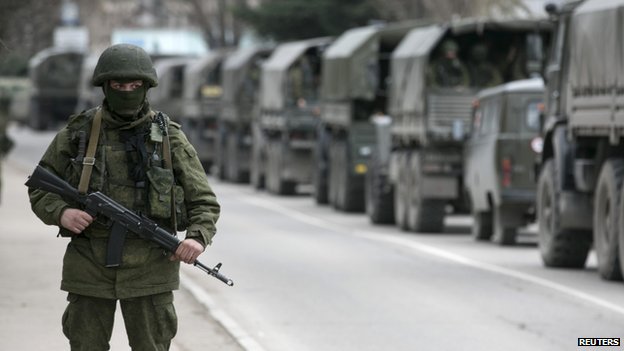“I want the general public to know that an incredible number of books have been published about the war, about the events in eastern Ukraine,” she writes in her Facebook post.
Ganna also manages a FB page called Книги_про_війну
(Knyhy_pro_viynu; War books), where she informs about the latest publications and announces book launches, discussions and meetings with authors.
Skorina has classified these books in 16 categories:
- The authors are soldiers, those who have returned to civilian life, as well as those still serving
- Graphic novels and comics
- The annexation and occupation of Crimea
- Poetry by non-military personnel
- Children’s literature
- War themes in periodicals
- Analyses, information on safety, communications, in the context of the war
- War and Metaphor, satire, futuristic novels, science fiction
- Monographs, research, reports
- Books on the war written by foreigners
- Books of Analysis on the earlier categories
- E-books
- Literary and related artistic events, such as festivals, forums, projects, theatre
- Classification of reviews, radio and TV programs, articles about these books
- Identification of the books as they are translated and published in other countries
- Non-Ukrainian military authors, especially those relating their experience to this war.
She explains her criteria as follows:
“I believe that in addition to books written by soldiers, it is of utmost importance to include books by any author about the war. There are instances when only a few short stories in a larger collection relate to the war, but I have included them as well.”
The publishing houses are another story in themselves, and Skorina mentions the following:
- Folio has published 37 books
- Dipa 21; 50% of their publications have been authored by soldiers, volunteers and journalists.
- Markobook (by Marko Melnyk) has already published ten books on the war, and turns to veterans as authors and works on specific pre-publication tasks.
- Publisher Bilka has committed to three-four such books annually. Their project, Dotsya, by Tamara Horikhna Zernya, won the BBC Ukrainian Book of the Year.
- Tvory
- Oleksiy Evenok’s Bukdruk
- KSD
- Tempora
- Skorina makes a special mention of Vlad Sord, a volunteer soldier and veteran, and co-founder of the Vynnytsia-based Chimera Publisher, which publishes fantasy and science fiction, “which is also a good sign. There is a lack of such books in Ukrainian.” Her list concludes with Patriot Book, which currently offers six books on the present war.
- Orientyr Volyn, with eight patriotic titles from and about the Azov Regiment.
- Zaliznyi Tato (addition by translator)
- Self-Published (addition by translator)
As to the language of these books, an earlier list had the following: Ukrainian - 342 books, Russian - 80, and several titles have been published in both languages.
Ganna concludes that “...it is not a rating and I am not placing any personal favourites first. It is an enumeration of books that have been published on the current war… categorizing those written by soldiers themselves and non-soldiers, such as civilian volunteers, journalists, the families of deceased soldiers, and novelists.”
One of the soldiers, Serhiy Moroz, author of Aidar: Summer of 2014 states that he started writing in order to “organize his thoughts”.
“This is my diary. I recorded the terrible events of the summer of 2014, which took place in eastern Ukraine. It was then that fierce and bloody battles for the territorial integrity and independence of our state took place along the entire front line.”






